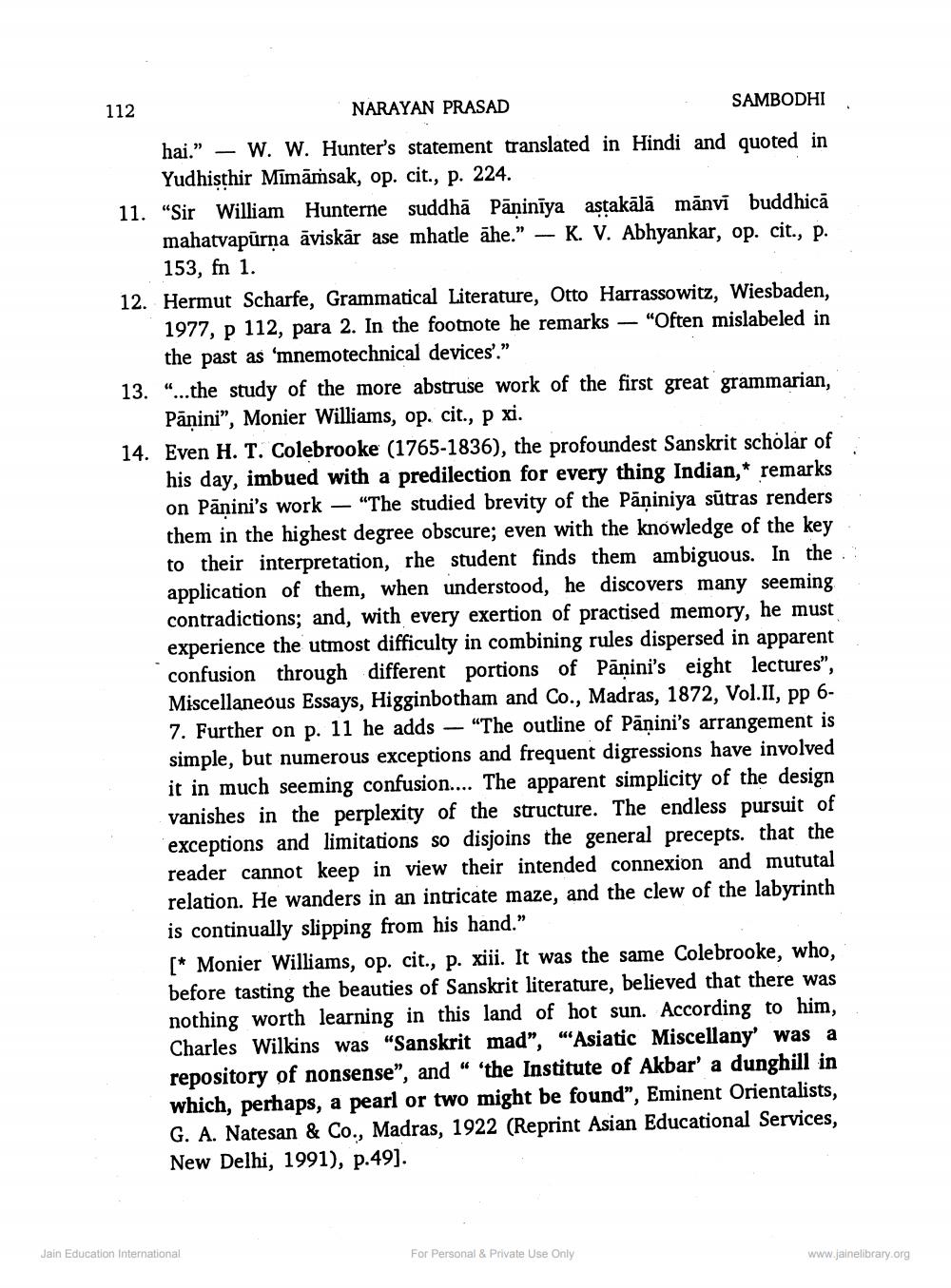________________
112
NARAYAN PRASAD
SAMBODHI hai.” — W. W. Hunter's statement translated in Hindi and quoted in
Yudhisthir Mimāmsak, op. cit., p. 224. 11. "Sir William Hunterne suddhā Pāninīya astakālā mānvi buddhicā
mahatvapurna āviskär ase mhatle āhe." - K. V. Abhyankar, op. cit., p.
153, fn 1. 12. Hermut Scharfe, Grammatical Literature, Otto Harrassowitz, Wiesbaden.
1977, p 112, para 2. In the footnote he remarks — "Often mislabeled in
the past as 'mnemotechnical devices”.” 13. "...the study of the more abstruse work of the first great grammarian,
Pāṇini”, Monier Williams, op. cit., p xi. 14. Even H. T. Colebrooke (1765-1836), the profoundest Sanskrit scholar of
his day, imbued with a predilection for every thing Indian,* remarks on Pāṇini's work — "The studied brevity of the Pāņiniya sūtras renders them in the highest degree obscure; even with the knowledge of the key to their interpretation, the student finds them ambiguous. In the application of them, when understood, he discovers many seeming contradictions; and, with every exertion of practised memory, he must experience the utmost difficulty in combining rules dispersed in apparent confusion through different portions of Pāṇini's eight lectures”, Miscellaneous Essays, Higginbotham and Co., Madras, 1872, Vol. II, pp 67. Further on p. 11 he adds — “The outline of Pānini's arrangement is simple, but numerous exceptions and frequent digressions have involved it in much seeming confusion.... The apparent simplicity of the design vanishes in the perplexity of the structure. The endless pursuit of exceptions and limitations so disjoins the general precepts. that the reader cannot keep in view their intended connexion and mututal relation. He wanders in an intricate maze, and the clew of the labyrinth is continually slipping from his hand." [* Monier Williams, op. cit., p. xiii. It was the same Colebrooke, who, before tasting the beauties of Sanskrit literature, believed that there was nothing worth learning in this land of hot sun. According to him, Charles Wilkins was "Sanskrit mad", "Asiatic Miscellany' was a repository of nonsense”, and “ 'the Institute of Akbar' a dunghill in which, perhaps, a pearl or two might be found", Eminent Orientalists, G. A. Natesan & Co., Madras, 1922 (Reprint Asian Educational Services, New Delhi, 1991), p.49].
Jain Education International
For Personal & Private Use Only
www.jainelibrary.org




